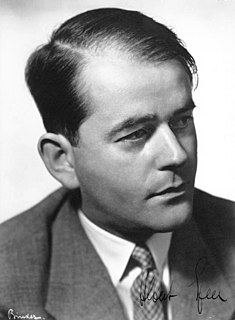A Quote by Pope Benedict XVI
We are moving toward a dictatorship of relativism which does not recognize anything as for certain and which has as its highest goal one's own ego and one's own desires.
Related Quotes
We are building a dictatorship of relativism that does not recognize anything as definitive and whose ultimate goal consists solely of one's own ego and desires.
We, however, have a different goal: the Son of God, the true man. He is the measure of true humanism. An "adult" faith is not a faith that follows the trends of fashion and the latest novelty; a mature adult faith is deeply rooted in friendship with Christ.
A dictatorship of relativism is being built that recognizes nothing as definite, and which leaves as the ultimate measure only one's ego and desires ... Having a clear faith, according to the credo of the church, is often labeled as fundamentalism. Yet relativism, that is, letting oneself being carried 'here and there by any wind of doctrine,' appears as the sole attitude good enough for modern times.
Pathology has made us acquainted with a great number of states in which the boundary lines between the ego and the external world become uncertain or in which they are actually drawn incorrectly. There are cases in which parts of a person's own body, even portions of his own mental life - his perceptions, thoughts and feelings -, appear alien to him and as not belonging to his ego; there are other cases in which he ascribes to the external world things that clearly originate in his own ego and that ought to be acknowledged by it.
A free mind is one which is untroubled and unfettered by anything, which has not bound its best part to any particular manner of being or worship and which does not seek its own interest in anything but is always immersed in God's most precious will. . . . There is no work which men and women can perform, however small, which does not draw from this its power and strength.
Does the open wound in another's breast soften the pain of the gaping wound in our own? Or does the blood which is welling from another man's side staunch that which is pouring from our own? Does the general anguish of our fellow creatures lessen our own private and particular anguish? No, no, each suffers on his own account, each struggles with his own grief, each sheds his own tears.
Hitler's dictatorship was the first of an industrial estate in this age of modern technology, a dictatorship which employed to perfection the instruments of technology to dominate its own people. By means of such instruments of technology, eighty million persons could be made subject to the will of one individual. Telephone, teletype, radio, made it possible to transmit the commands of the highest levels directly to the lowest organs where they were executed uncritically
There is an inherent tendency in all governmental power to recognize no restraints on its operation and to extend the sphere of its dominion as much as possible. To control everything, to leave no room for anything to happen of its own accord without the interference of the authorities--th is is the goal for which every ruler secretly strives.
Hardships of early human life favored the evolution of certain cognitive tools, among them the ability to infer the presence of organisms that might do harm, to come up with causal narratives for natural events and to recognize that other people have minds of their own with their own beliefs, desires and intentions.
Ego brings unnatural desires in you; it drives you crazy. Life is simple, but to be simple one has to be purposeless. Any goal, and you can`t be simple. Any goal and you can`t be herenow. Any goal and the desire will rock you. Any goal, and you are on the way, again moving - you cannot enjoy this moment, the grace of this moment, the benediction of herenow.
Not the least of the problems in clarifying one's consciousness is developing the stoic determination to criticize one's own softness or sentimentality toward oneself. Ego, self-solicitous about its own tenderness, is the ultimate policeman over its own false consciousness, dementedly uprooting every healthy seedling of insight into the truth. As Kierkegaard remarked, most people are subjective toward themselves and objective toward all others, but the real trick and task of life is to learn to be just the very opposite.
The most desirable mode of education, is that which is careful that all the acquisitions of the pupil shall be preceded and accompanied by desire . . . The boy, like the man, studies because he desires it. He proceeds upon a plan of is own invention, or by which, by adopting, he has made his own. Everything bespeaks independence and inequality.

































